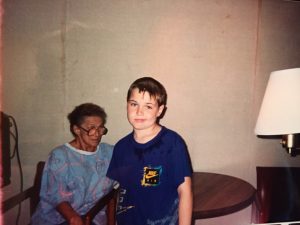Childhood Trauma Shown to Shorten Lifespan

“Adverse childhood experiences are the single greatest unaddressed public health threat facing our nation today,” explained Dr. Robert Block, former President of the American Academy of Pediatrics.
In a Ted Talk given by Dr. Nadine Burke Harris on the effects of childhood trauma throughout one’s lifetime, she revealed that childhood trauma increases the risk for seven of the ten leading causes of death in the USA.

For those who are exposed to high levels of childhood trauma, life expectancy is 20 years shorter. They are also three times more likely to develop heart disease and lung cancer.
Dr. Burke Harris then summarized what she has been studying: adverse childhood experiences, referred to as ACEs, and their effect on health throughout one’s lifetime. ACEs include:
- physical, emotional, or sexual abuse
- physical or emotional neglect
- parental mental illness
- substance dependence
- incarceration
- parental separation or divorce
- domestic violence
For every ACE that applied to the participant, they would get a point on their ACE score.
According to the study, 67% of the population has experienced at least one ACE.
The study then revealed that the higher one’s ACE score, the worse their physical and mental health outcomes tend to be.
It has been shown that growing up in lower income households often presents more severe levels of trauma for children. Unfortunately, this is a common dilemma for many. One out of every five children is born into poverty, and the cycle is difficult to break.
As seen with our 2017 Go Big Read book, Hillbilly Elegy, author J.D. Vance grew up in a low-income household, facing adversities, which impacted his life as an adult.

Not only is it more likely for children in poor families to posses a high ACEs score, but it has also been noted that being raised in a low income household disturbs children’s brain development and academic performance.
In his memoir, Vance explained that when his mother moved him away from the comfort of his grandparents, he was unable to sleep, had depressed feelings, and his grades plummeted.
According to an article on the effect of childhood poverty on development and educational outcomes, children in chronically poor families have “lower cognitive and academic performance” and higher levels of behavior problems than children who are not poor.
It is painfully clear that childhood trauma and the environment that the child matures in can have a lifetime effect on their health and development. Although there have been large numbers of studies on these effects, finding a solution is not as straightforward.
However, Dr. Burke Harris remains hopeful.
“This is treatable. This is beatable… We are the movement.”
Gillian Keebler
Student Assistant, Go Big Read Office